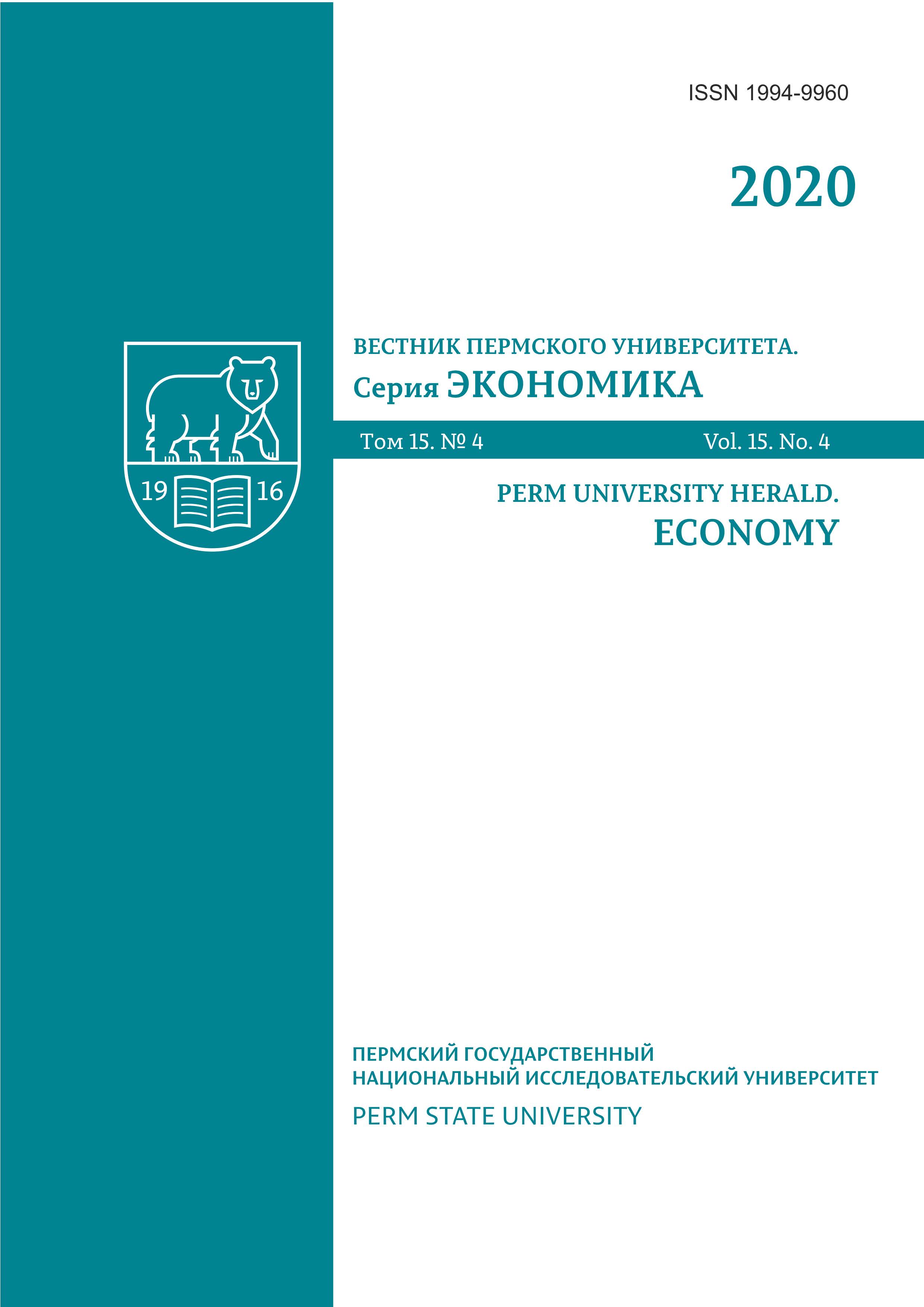Vol. 15 No. 4 (2020)

2020 final issue starts with an article analyzing the Government “Digital Economy of the Russian Federation” Program to identify the conceptual inconsistencies which could trigger the alternative scenarios of the economic development in Russia and the inconsistent managerial decisions, which could lead to significant differences in the development of the digital economy in different industries and regions of the country.
A second section “Regional Economy” is devoted to different aspects of better performance of the regional social and economic systems aimed at developing the tools supporting the reasonable managerial decisions, among other purposes. In the first article, the comparative analysis is applied to justify the selection of the indicators to measure the region’s sustainable development. It also describes author’s conceptual model of selecting the evaluation criteria for the regions’ sustainable development. The next article reasons the benefits of the author’s system and agglomeration approach to identify the nature of the mechanism contributing into the interinfluence of the region’s socio-economic environment and the industrial cluster and into better identification of adverse and positive clusterization effects which give better opportunities for targeted and timely managerial impact. The final article of the section develops an accessibility evaluation methodology for the near-border regional markets and presents the classification of the regions by the periphery of the near-border regional markets. The proposed methodology tools enhance the understanding of the role for the geographical location in the regions’ economic development and could be applied to develop RF interregional, transborder, and international cooperation strategies.
The final section “Enterprise Economy and Management of Enterprises, Organizations, Branches, Complexes” focuses on the gaps in the Russian forestry sector and on better energy efficiency of the industrial enterprises. To achieve this goal: 1) the best global practices in investment encouragement in the forestry sector have been classified by reviewing the experiences of the leading countries in timber harvesting and covering the administrative and economic tools; the relevance of their application in national context with regard to the institutional, nature and climate features of the forestry and forest industry in Russia has been justified; 2) a comprehensive approach to the development of the gas consumption strategy at an industrial enterprise with a business model which implements this strategy and tools for performance evaluation tested at the metallurgic enterprises in Chelyabinsk region has been proposed.
This issue is different from the previous ones as the English abstracts of the articles which describe the scientific novelty and the results of the studies for the foreign readers of our Journal have become more extended. The Editorial Board of the Journal will continue this practice for the English abstracts and hope this could attract more attention of the global academic community to the publications.









